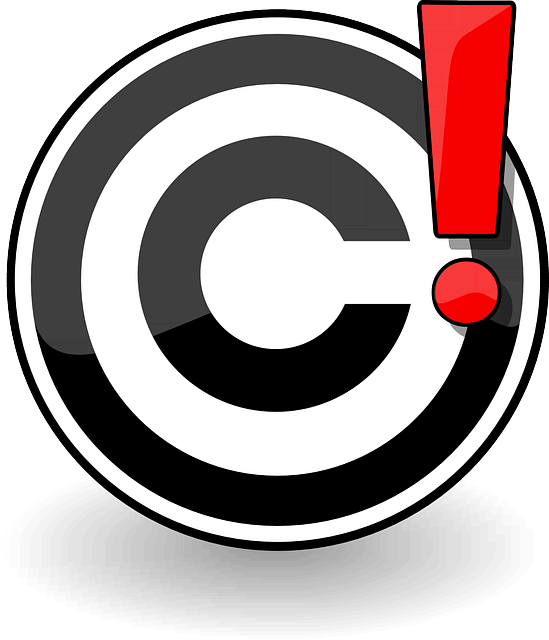 Have you received a DMCA notice from your ISP or VPN provider? Below, we’ll go through what they are, what they mean and where they come from.
Have you received a DMCA notice from your ISP or VPN provider? Below, we’ll go through what they are, what they mean and where they come from.
Remember that we’re not lawyers, so we’re not giving you legal advice. There are, however, some basics about these notices that you should know.
First, What Is It?
A DMCA notice is not a warrant, a subpoena or a formal charge. It is, however, a type of formal complaint.
The notice alleges that you—or someone at your IP address—was tracked downloading copyright infringing content. The notice will contain some basic information that should let you know why you received it.
The notice will usually state something like “We are writing this letter on behalf of [copyright owner].” This will tell you whose content was infringed.
The notice will usually reference the Copyright Act, Title 17, United States Code Section 106(3) and state that an individual at the IP address referenced by the letter was offering downloads of copyrighted material through a P2P program.
This might mean that you were seeding material that infringed on someone’s copyright over a bit torrent swarm. It also might mean that you put up a video on your site or on YouTube that infringed on someone’s rights. It could also mean that the copy on one of your website pages was so close to someone else’s that they decided to send a DMCA notice to you.
The actual record of the download will give the notice ID, the “Asset”—which is whatever you were downloading or seeding—the IP address recorded by the monitoring agency, the DNS server, the name of the file, the time stamp, the last seen date, other file information and the username.
Some of this information might be missing from the complaint. The port involved in the downloading or seeding will usually be noted, as well.
ISPs are required to send these notices along to their customers.
What to Do with the Notice
If your real IP address is noted in the takedown request, you might be offered a settlement option.
Some companies—notably Rightscorp—will allow you to go to their site, put in the notice number and pay them off to make them go away.
Other notices might be used as part of the “six-strikes” program. After getting six of these, your Internet service will be cut off.
But what if you use a VPN? It depends upon their logging policy.
If the VPN service doesn’t log and they receive one of these requests, they have no way of going back through their records to see which subscriber was actually using the IP address named on the complaint. Therefore, there’s no one to accuse of copyright infringement.
If the VPN does log, they’ll likely forward the notice along to you, with a warning that any further infringement will result in a suspension or cancellation of your account.
Essentially, it comes down to whether or not the notice lists your real IP or if it can be connected to your real IP by checking logs of some sort. If there are no logs, it goes away.
Privacy/Torrent Policy
In our reviews, you’ll see that we note the privacy policy of any VPN provider we review, along with their logging policy.
This lets you know whether or not the provider is torrent friendly. Some providers want nothing to do with torrents and restrict P2P altogether. Others allow torrents, but do log, so, if you get a complaint, it will be forwarded to you.
Providers that don’t log have no idea what you’re doing on their servers and aren’t likely to be able to send a DMCA notice to you, even if they wanted to. They simply have no logs of which IP you were using and, therefore, no way of knowing who to forward the notice to.
There are VPN services that are marketed to torrent users. TorGuard is a good example. Some VPN providers will allow torrents over certain servers, usually located in nations that are very privacy friendly, such as the Netherlands.
If your primary reason for getting a VPN is to torrent, be sure the service you’re interested in allows P2P and that they don’t log. It’s your best bet where privacy is concerned.
If you’re going to torrent, you should also hook up to a server in a location that’s hostile to invasive copyright holder tactics.
Is All Logging Bad?
Not at all. Some very good providers do log to an extent. When they do, there’s usually nothing sinister behind it.
Most of the time, the logging is for troubleshooting purposes. Again, check our reviews and you can see whether or not a given provider logs and what servers they offer P2P over.
Other Options
Aside from VPN services, you can also explore USENET as a very privacy-friendly option. USENET providers typically allow you to connect over an encrypted port, which offers excellent security.
Seedboxes are another option. These services download torrents very quickly from anonymous IPs. You then download the content over a secure connection.
Don’t Freak Out
Remember that a DMCA notice is merely an accusation that you’ve stolen something. It’s not the equivalent of getting swatted by an entertainment industry lackey.
Whatever entity sent you the notice will let you know what your options are, whether it’s to pay a settlement or just take it as a warning.
It’s always a good idea to protect your privacy whenever you can, however. A VPN service is much more than an anonymizing tool for using bit torrent. It’s one of the best overall privacy options out there and, because these services have gotten so fast over the years, it’s entirely feasible to keep your VPN running all the time, offering you protection from all manner of online threats.


Leave a Reply